-
Macarius on the Harrowing of Hell
Even if you haven’t read the Macarian Homilies, there’s a good chance you’ve come across this famous passage:
The heart itself is awesome but a small vessel, yet there also are dragons and there are lions; there are poisonous beasts and all the treasures of evil. And there are rough and uneven roads; there are precipices. But there is also God, also the angels, the life and the kingdom, the light and the Apostles, the treasures of grace – there are all things.
This is one of the most distinctive features of Macarius’ spiritual writings: his insistence each and every human heart is itself a battleground on which the whole story of salvation is played out.
-
Reconstruction of the hymn "Rashi Ne"
Current translations of the hymn ‘Rashi Ne - Ραϣι ⲛⲉ’ are quite awkward whether it be in English or Arabic. This post is a brief summary how the hymn was constructed and aims to provide proper Arabic and English translations for the hymn that are more accurate than the common ones used today.
-
Peter Bouteneff on Science and History in Genesis
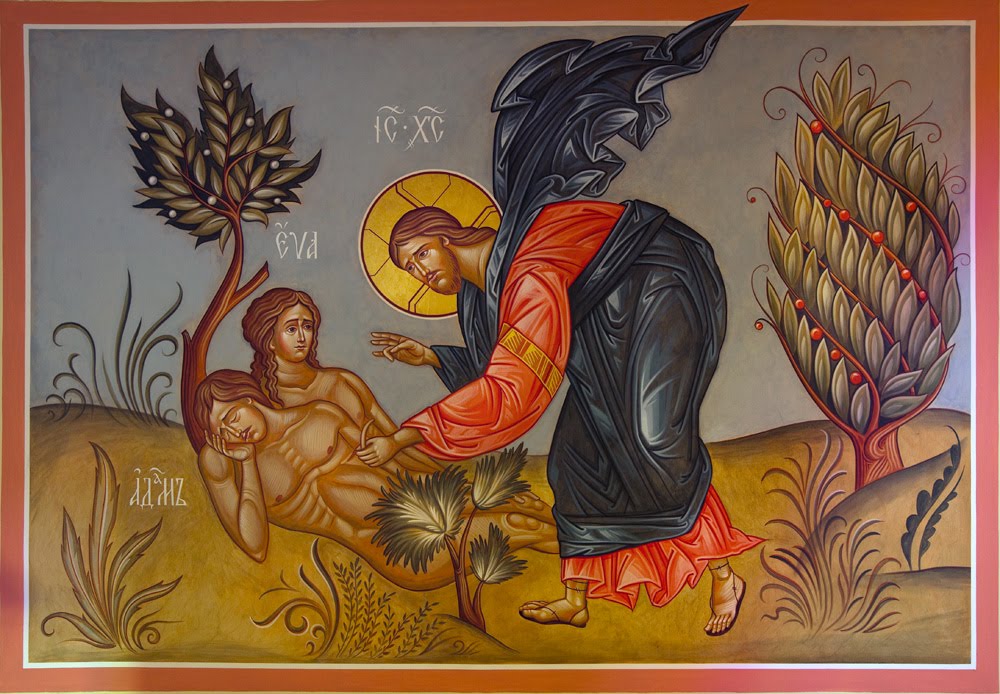
Unlike many Christians in our day, for example, the fathers generally did not doubt Adam and Eve’s historic existence; Adam was, after all, the root of the key scriptural genealogies. Unlike us, they had no scientific reason to doubt them as the first physical parents of humanity. Thinkers such as Origen, especially, took the literary cues of the biblical narratives as indicating an interweaving of fictive and historical material and pointed out that the “historical” tends to be completely beyond our means either to access or to prove.
-
Eugen Pentiuc on Christ and the Scriptures
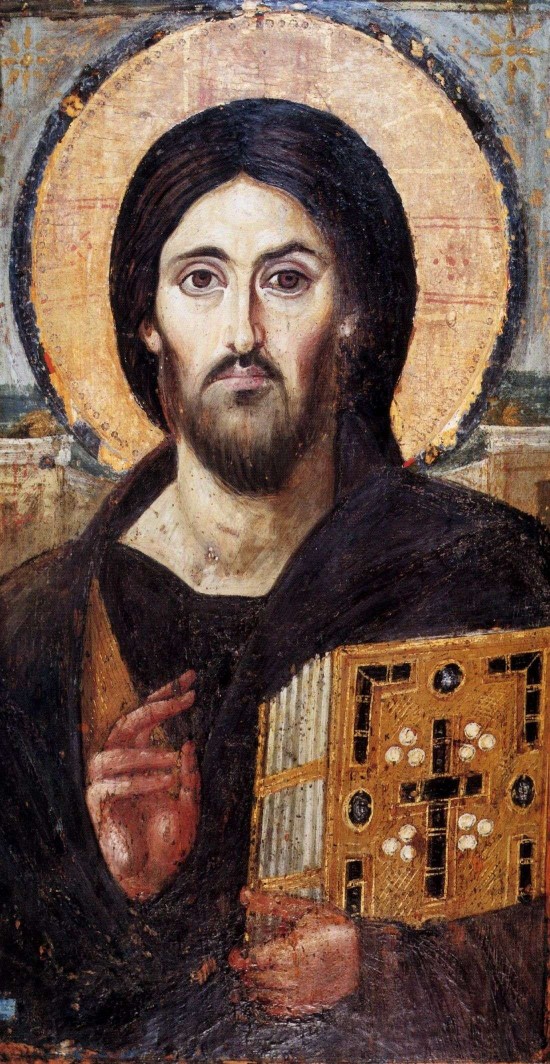 A Blessing Hand and a Cross-Sealed Book… Christianity has always understood itself as a faith and way of life based on one person’s life and sacrifice—that of Christ, and on written records containing the Word of God handed over by prophets and apostles—the books of Old and New Testaments. There is no Scripture without Christ as there is no Christ without Scripture; and this is true for all the historical phases of Christianity. Knowledge of Christ’s person and knowledge of the Scriptures are interdependent elements that make up the very fabric of Christian faith.
A Blessing Hand and a Cross-Sealed Book… Christianity has always understood itself as a faith and way of life based on one person’s life and sacrifice—that of Christ, and on written records containing the Word of God handed over by prophets and apostles—the books of Old and New Testaments. There is no Scripture without Christ as there is no Christ without Scripture; and this is true for all the historical phases of Christianity. Knowledge of Christ’s person and knowledge of the Scriptures are interdependent elements that make up the very fabric of Christian faith. -
N. T. Wright on the Kingdom of God
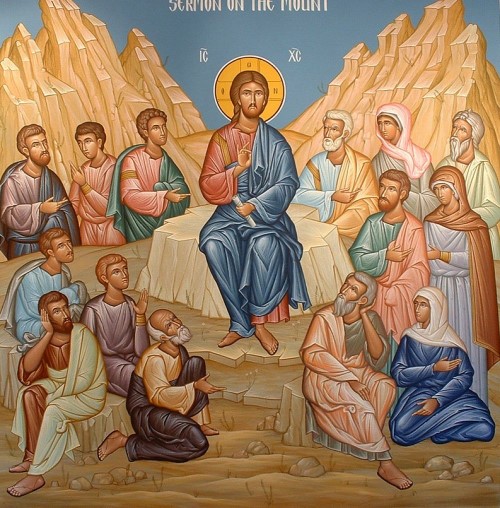 The normal Christian understanding of kingdom, especially of kingdom of heaven, is simply mistaken. “God’s kingdom” and “kingdom of heaven” mean the same thing: the sovereign rule of God (that is, the rule of heaven, of the one who lives in heaven), which according to Jesus was and is breaking in to the present world, to earth.
The normal Christian understanding of kingdom, especially of kingdom of heaven, is simply mistaken. “God’s kingdom” and “kingdom of heaven” mean the same thing: the sovereign rule of God (that is, the rule of heaven, of the one who lives in heaven), which according to Jesus was and is breaking in to the present world, to earth. -
Alexander Schmemann on Mary in the Orthodox Church
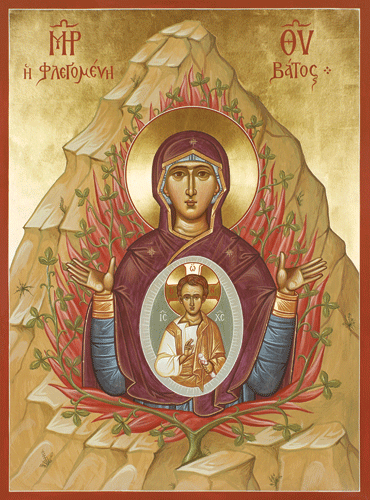
It is significant that whereas in the West Mary is primarily the Virgin, a being almost totally different from us in her absolute and celestial purity and freedom from all carnal pollution, in the East she is always referred to and glorified as Theotokos, the Mother of God, and virtually all icons depict her with the Child in her arms. There exist, in other words, two emphases in mariology, which, although they do not necessarily exclude one another, lead to two different visions of Mary’s place in the Church.
-
Cyril of Alexandria on the pouring of the Holy Spirit after the resurrection
 And if you investigate the reason why not before the resurrection but after it did the pouring forth of the Spirit take place, you will hear in reply: Christ became at the resurrection the firstfruits of the renewed nature, when nullifying the bands of death He lived again. How then should we be made alive before the Firstfruit?
And if you investigate the reason why not before the resurrection but after it did the pouring forth of the Spirit take place, you will hear in reply: Christ became at the resurrection the firstfruits of the renewed nature, when nullifying the bands of death He lived again. How then should we be made alive before the Firstfruit? -
Irenaeus on the growth of creation towards perfection
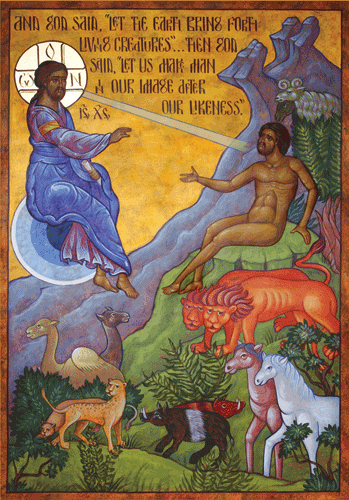 If, however, any one say, “What then? Could not God have exhibited man as perfect from
beginning?” let him know that, inasmuch as God is indeed always the same and unbegotten as respects
Himself, all things are possible to Him. But created things must be inferior to Him who created them, from
the very fact of their later origin; for it was not possible for things recently created to have been uncreated.
If, however, any one say, “What then? Could not God have exhibited man as perfect from
beginning?” let him know that, inasmuch as God is indeed always the same and unbegotten as respects
Himself, all things are possible to Him. But created things must be inferior to Him who created them, from
the very fact of their later origin; for it was not possible for things recently created to have been uncreated.